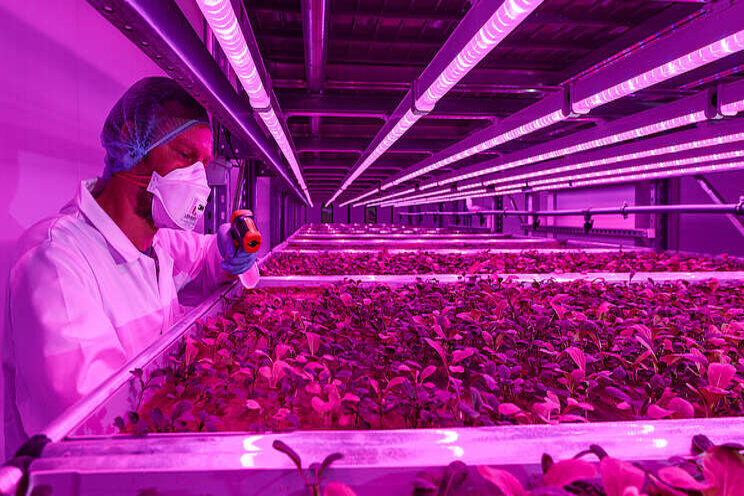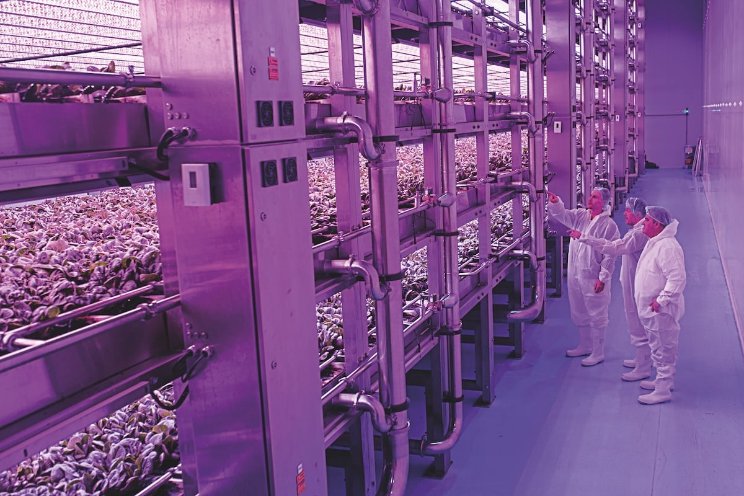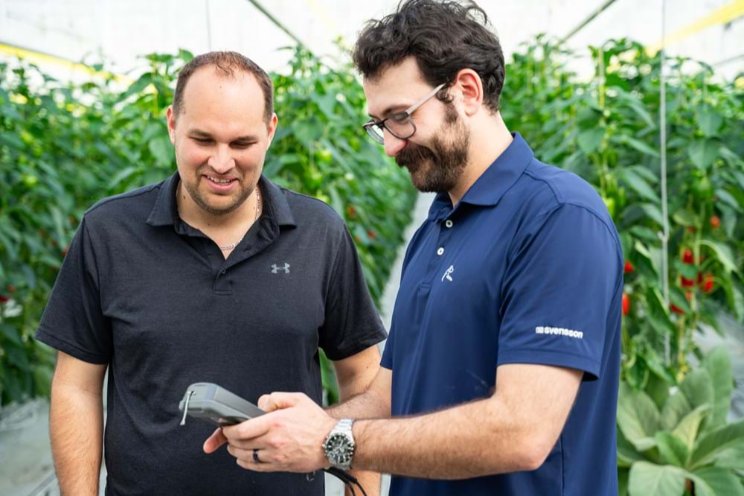5 questions to answer before starting a vertical farm
Added on 09 November 2020

Regardless of your past experience, if you are thinking of entering the world of vertical farming, you need to know what to expect. As a starting point, here are five questions to ask yourself before seriously considering launching a vertical farm.
1. What crops should you consider growing?
What are you planning to grow? This decision will have an impact on every aspect of your vertical farm, from setup and spacing to resources, distribution and lighting, so it's crucial that you make a choice that best suits you.
It is likely that you already have an idea of what crops you want to grow. But is that crop a good fit for a vertical farm? What's its harvest cycle? Is there enough demand for it in your area? How does it need to be distributed? You'll need to conduct an analysis of crops suitable for vertical farming and consider your options before going further into the schematics of your farm.
2. How much space do you have or need?
One of the perks of vertical farming is that growing racks allow you to make very efficient use of very little space. We've seen smart vertical farming setups make growing in the middle of a crowded city or a small complex attainable. However, what may seem like the smallest factors (like fixture mounting heights) have the potential to impact your farm's viability. That's why working with trusted partners like Current is critical to your success: we can get you started on the right path with a free light plan, amongst other things.
3. Do you have a partner?
Speaking of partners—do you have one? Are you working alone or with a team? Do you have access to plant scientists and researchers who can provide insight on best practices? Is there an expert who can design your lighting for optimum yields? Who will you turn to if a grow light fails?
These questions are the first step to a serious venture as pairing with the right partner means you can tackle all challenges that may come up in one fell swoop. Look for resources or someone in your network who have a reputation of excellence throughout the industry. Bonus points if those prospects also have a strong network of partners in horticulture they can turn to for specific expertise.
4. Who is investing?
Few people can fund a vertical farm on their own. You need investors—and sometimes that means getting banks on board as well. Having a formal business plan backed by industry stalwarts will be critical to presenting a strong front to the financial world and turning your dreams of owning your own vertical farm into a reality.
5. What grow lights will you use?
You have the space, you know what you want to grow and you've found your partners—now what? Time to select the grow lights that will power your vertical farm.
The right light is a crucial component to making your operation a success and will get you the yield you need to succeed in this new venture. Choosing the horticulture grow lights to get you there is a decision that marries price, light spectrum, warranty, ease of maintenance, efficiency and much more. LED lighting may seem like a complex world - and that's where we come in. We're here to help you understand the basics of grow lights, figure out how they'll interact with your farm and set your farm on the road to success. We see growers pour their hard work and passion into their vertical farms every day. That's why we think your partners should match your enthusiasm and go above and beyond to help your farm succeed.
Learn more about how Current helps vertical farms get off the ground.
Source and Photo Courtesy of GE current
Source: GE current
More news















